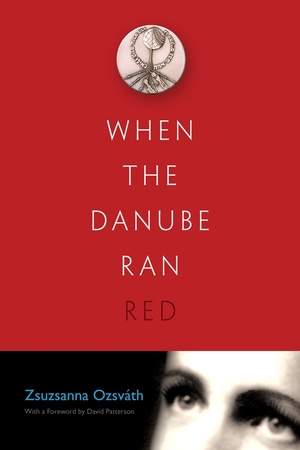"We listen, and we read, and if the stories are good and true, we incorporate them into our own views of the world. What I've learned from . . . Zszusi has affected my life ever since."—The Jewish Week
"Ozsváth has written extensively about Holocaust literature and the Holocaust in Hungary. When the Danube Ran Red combines a grounding in Hungarian history with the pathos of a survivor and the eloquence of a poet."—The Jewish Book Council
"An indelible account of evil and the various forms it can take, as well as a portrait of profound goodness that few other Jews witnessed—even in brief encounters."—Jewish Exponent
Description
Opening with the ominous scene of one young school girl whispering an urgent account of Nazi horror to another over birthday cake, Ozsváth’s extraordinary and chilling memoir tells the story of her childhood in Hungary, living under the threat of the Holocaust. The setting is the summer of 1944 in Budapest during the time of the German occupation, when the Jews were confined to ghettos but not transported to Auschwitz in boxcars, as were the Hungarian Jewry living in the countryside. Provided with food and support by their former nanny, Erzsi, Ozsváth’s family stays in a ghetto house where a group of children play theater, tell stories to one another, invent games to pass time, and wait for liberation.
In the fall of that year, however, things take a turn for the worse. Rounded up under horrific circumstances, and shot on the banks of the Danube by the thousands, the Jews of Budapest are threatened with immediate destruction. Ozsváth and her family survive because of Erzsi’s courage and humanity. Cheating the watching eyes of the munderers, she brings them food and runs with them from house to house under heavy bombardment in the streets.
As a scholar, critic, and translator, Ozsváth has written extensively about Holocaust literature and the Holocaust in Hungary. Now, for the first time, she records her own history in this clear-eyed, moving account. When the Danube Ran Red combines an exceptional grounding in Hungarian history with the pathos of a survivor, and the eloquence of a poet to present a truly singular work.
About the Author
Zsuzsanna Ozsváth is the Leah and Paul Lewis Chair of Holocaust Studies and professor of literature and history of ideas at the University of Texas, Dallas. Her publications include In the Footsteps of Orpheus: The Life and Times of Miklós Radnóti, and Foamy Sky: The Major Poems of Miklós Radnóti (with Fred Turner), and The Iron-Blue Vault: Selected Poems of Atilla Jozsef (with Fred Turner).
August 2017




